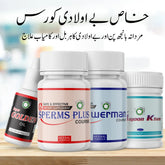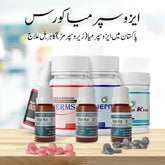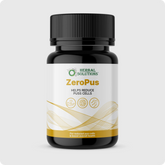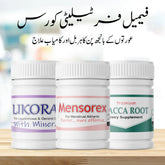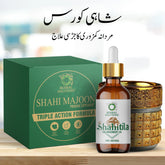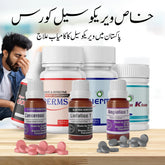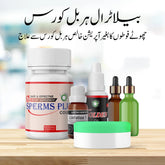Increase Testosterone Level Naturally - Proven Methods & Herbal Solutions 2025
Feeling like a shadow of your former self? Experiencing unexplained fatigue, muscle loss, or diminished drive? These could be signs of declining testosterone levels - a silent epidemic affecting men of all ages. The good news is that understanding how to increase testosterone level naturally can restore your masculine vitality and transform every aspect of your life.
In this evidence-based guide, we'll explore powerful, natural methods to reclaim your hormonal health without the risks and side effects of synthetic treatments.
The Hidden Testosterone Crisis Affecting Modern Men
Today's men face unprecedented challenges to their hormonal health. Research reveals that testosterone levels have dropped by 1-2% annually over the past four decades. This isn't just about aging - young men in their 20s and 30s are experiencing testosterone levels comparable to men twice their age from previous generations.
The culprits behind this hormonal catastrophe include processed foods laden with chemicals, sedentary lifestyles, chronic stress, environmental pollutants, and disrupted sleep patterns. Understanding these factors is the first step in learning how to increase testosterone level effectively.
The Testosterone-Food Connection: Eating for Hormonal Excellence
Your kitchen holds the key to hormonal transformation. Specific foods can either boost or sabotage your testosterone production, making dietary choices critical for optimization.
Power Foods for Testosterone Production
Organ Meats - Nature's Multivitamin: Liver, kidney, and heart contain concentrated nutrients essential for hormone synthesis. These ancestral foods provide vitamin A, B-vitamins, zinc, and coenzyme Q10 in their most bioavailable forms.
Shellfish Supremacy: Oysters contain more zinc per serving than any other food, providing up to 74mg in just six oysters. This essential mineral directly supports testosterone production and male fertility.
Fermented Foods for Gut Health: Your gut microbiome directly influences hormone production. Kimchi, sauerkraut, kefir, and yogurt support beneficial bacteria that aid in testosterone synthesis and reduce inflammation.
Traditional Bone Broth: Rich in glycine, proline, and collagen, bone broth supports overall health while providing the building blocks for hormone production. The minerals extracted from bones during slow cooking are easily absorbed and utilized.
Foods That Destroy Testosterone
Avoiding testosterone-killing foods is equally important as consuming beneficial ones:
Processed Soy Products: Contain phytoestrogens that can interfere with natural hormone balance. Limit soy milk, tofu, and processed foods containing soy protein isolate.
Trans Fats and Vegetable Oils: Industrial seed oils like canola, soybean, and corn oil promote inflammation and interfere with hormone production. These oils are hidden in most processed foods.
Excessive Sugar and Refined Carbs: Cause insulin spikes that suppress testosterone production. High sugar intake can reduce testosterone levels by up to 25% within hours.
Alcohol in Excess: While moderate consumption may not harm testosterone, excessive drinking directly suppresses hormone production and increases aromatase activity.
Movement Medicine: Exercise Strategies for Hormonal Optimization
Physical activity is perhaps the most powerful natural tool for boosting testosterone. However, not all exercise is created equal when it comes to hormonal benefits.
The Testosterone-Boosting Exercise Formula
Compound Movement Mastery: Focus 80% of your training on multi-joint exercises that engage large muscle groups. These movements create the greatest hormonal response and functional strength gains.
- Deadlifts: The king of all exercises, working nearly every muscle in your body
- Squats: Build powerful legs while stimulating whole-body hormone release
- Pull-ups/Chin-ups: Develop upper body strength and improve posture
- Overhead Press: Build shoulder stability and core strength
Progressive Overload Principle: Continuously challenge your body by gradually increasing weight, reps, or intensity. Your muscles must perceive a threat to adaptation to trigger testosterone release.
Recovery-Focused Training: More isn't always better. Training 3-4 times per week with adequate recovery produces better hormonal results than daily intense sessions that elevate cortisol.
Metabolic Training for Hormonal Health
Sprint Intervals: Short bursts of maximum effort followed by complete recovery periods. This training style mimics natural human movement patterns and creates significant testosterone elevation.
Farmer's Walks: Carrying heavy objects for distance builds functional strength while providing cardiovascular benefits. This primal movement pattern stimulates multiple hormonal pathways.
Kettlebell Complexes: Combining strength and cardiovascular training through flowing movements creates an excellent hormonal response while improving work capacity.
Sleep: The Forgotten Hormone Optimizer
Quality sleep is when your body performs its most important hormonal maintenance. During deep sleep phases, your brain releases growth hormone and signals testosterone production. Poor sleep can reduce testosterone levels by up to 15% in just one week.
Creating the Perfect Sleep Environment
Temperature Optimization: Your bedroom should be cool (65-68°F) to support natural body temperature drops that signal sleep onset. Warm environments interfere with deep sleep phases crucial for hormone production.
Light Management: Complete darkness is essential for melatonin production. Even small amounts of light can disrupt circadian rhythms. Use blackout curtains and cover LED lights from electronics.
Sound Control: Consistent background noise or complete silence works best. Sudden sound changes can fragment sleep and reduce restorative phases.
Air Quality: Fresh, clean air supports better sleep quality. Consider an air purifier if you live in a polluted area or have allergies.
Sleep Timing and Consistency
Circadian Rhythm Alignment: Go to bed and wake up at the same time every day, including weekends. This consistency optimizes your body's natural hormone production cycles.
Evening Wind-Down: Begin preparing for sleep 2-3 hours before bedtime. Dim lights, avoid screens, and engage in relaxing activities like reading or gentle stretching.
Morning Light Exposure: Get 15-20 minutes of natural sunlight within the first hour of waking. This exposure helps regulate your circadian clock and supports healthy testosterone production.
Stress: Testosterone's Greatest Enemy
Chronic stress creates a hormonal cascade that directly opposes testosterone production. When stress hormones like cortisol remain elevated, your body prioritizes survival over reproduction, leading to suppressed testosterone levels.
Stress-Busting Strategies for Hormonal Health
Meditation Practice: Regular meditation reduces cortisol by up to 30% while improving emotional regulation. Start with just 5-10 minutes daily using guided apps or simple breathing techniques.
Nature Immersion: Spending time in natural environments reduces stress hormones while improving mood and mental clarity. Forest bathing or simply sitting in a park can provide significant benefits.
Social Connection: Strong relationships buffer stress and support overall health. Prioritize meaningful connections with family and friends who support your health goals.
Purposeful Work: Having a sense of purpose and meaning in your daily activities reduces stress and supports overall well-being. Align your work with your values when possible.
Herbal Wisdom: Traditional Solutions for Modern Problems
Throughout history, various cultures have used specific plants to support male vitality and hormonal health. Modern research validates many of these traditional herbal solutions, offering natural alternatives to synthetic interventions.
Research-Backed Herbal Testosterone Boosters
Ashwagandha Root: This adaptogenic herb helps your body manage stress while directly supporting testosterone production. Clinical studies show increases of 10-22% in testosterone levels along with improved strength and muscle mass.
Tongkat Ali Extract: Traditional Malaysian medicine has used this root for centuries. Modern research demonstrates its ability to increase free testosterone levels by up to 37% while improving energy and libido.
Shilajit: This mineral-rich substance found in mountain rocks contains fulvic acid and numerous trace minerals. Studies show it can increase testosterone levels by 20% while improving sperm quality and energy levels.
Pine Pollen: Contains natural androgens and nutrients that support hormonal balance. This superfood provides bioavailable nutrients in forms easily recognized by the body.
For men seeking comprehensive hormonal support, specialized programs combining multiple natural approaches prove most effective. The Special Fertility Course from Herbal Solutions integrates these powerful herbs with lifestyle guidance for optimal results.
The Micronutrient Foundation for Testosterone
While macronutrients provide energy and building blocks, specific vitamins and minerals act as cofactors in testosterone production. Deficiencies in key nutrients can severely limit your body's ability to produce optimal hormone levels.
Essential Nutrients for Hormone Production
Zinc - The Testosterone Mineral: Directly involved in testosterone synthesis and regulation. Deficiency is common and quickly leads to reduced hormone levels. Aim for 15-30mg daily from food sources or high-quality supplements.
Vitamin D3 - The Sunshine Hormone: Acts more like a hormone than a vitamin in the body. Most men are deficient, and supplementation can increase testosterone levels by 20-30%. Optimal blood levels are 40-60 ng/mL.
Magnesium - The Relaxation Mineral: Supports over 300 enzymatic reactions, including those involved in testosterone production. Magnesium also helps manage stress and improve sleep quality.
Vitamin K2 - The Forgotten Vitamin: Works synergistically with vitamin D to optimize hormone production. Found in fermented foods and grass-fed animal products.
Nutrient Timing and Absorption
Post-Workout Nutrition: Consuming protein and carbohydrates within 30 minutes after exercise optimizes the anabolic response and supports testosterone production.
Fat-Soluble Vitamin Timing: Take vitamins A, D, E, and K with meals containing healthy fats to improve absorption and utilization.
Mineral Separation: Some minerals compete for absorption. Take zinc on an empty stomach or separate from calcium and iron supplements.
Hydration and Hormonal Health
Proper hydration supports all cellular functions, including hormone production and transport. Even mild dehydration can increase cortisol levels while reducing testosterone synthesis.
Optimizing Your Hydration Strategy
Water Quality Matters: Filter your water to remove chlorine, fluoride, and other chemicals that can interfere with hormone production. These chemicals act as endocrine disruptors.
Electrolyte Balance: Maintain proper sodium, potassium, and magnesium levels for optimal cellular function. Sea salt and mineral-rich foods provide natural electrolytes.
Timing Strategy: Drink most of your water earlier in the day to avoid disrupting sleep with frequent bathroom trips. Taper water intake 2-3 hours before bedtime.
Environmental Toxins: Hidden Hormone Disruptors
Modern life exposes us to numerous chemicals that can interfere with natural hormone production. These endocrine disruptors mimic or block hormones, leading to imbalanced testosterone levels.
Common Hormone Disruptors to Avoid
Plastic Chemicals: BPA and phthalates from plastic containers leach into food and beverages. Use glass, stainless steel, or ceramic containers for food storage and consumption.
Personal Care Chemicals: Parabens, sulfates, and synthetic fragrances in shampoos, soaps, and cosmetics can disrupt hormonal balance. Choose natural, organic products when possible.
Household Cleaners: Many conventional cleaning products contain harsh chemicals that interfere with hormone function. Natural alternatives like vinegar, baking soda, and essential oils work effectively.
Pesticide Residues: Conventional produce often contains pesticide residues that act as hormone disruptors. Choose organic versions of the "dirty dozen" fruits and vegetables when possible.
Creating Your Personal Testosterone Transformation Plan
Success in learning how to increase testosterone level requires a personalized, systematic approach. Rather than trying to change everything at once, focus on implementing sustainable changes that build upon each other.
The 90-Day Testosterone Transformation
Days 1-30: Foundation Phase
- Establish consistent sleep schedule (7-9 hours nightly)
- Begin resistance training program (3x per week)
- Eliminate processed foods and focus on whole foods
- Start daily stress management practice
Days 31-60: Enhancement Phase
- Add targeted supplements (vitamin D3, zinc, magnesium)
- Implement intermittent fasting protocol
- Introduce sprint intervals or HIIT training
- Consider natural herbal solutions for additional support
Days 61-90: Optimization Phase
- Fine-tune all protocols based on progress
- Address remaining environmental toxin exposures
- Consider comprehensive programs like the Herbal Solutions Special Fertility Course
- Plan for long-term maintenance and continued optimization
Tracking Your Testosterone Transformation
Monitor both subjective improvements and objective markers to gauge your progress:
Subjective Markers of Improvement
- Increased morning energy and motivation
- Improved mood and emotional stability
- Enhanced libido and sexual function
- Better sleep quality and faster recovery
- Increased confidence and assertiveness
Objective Performance Indicators
- Strength gains in key lifts (squat, deadlift, bench press)
- Improved body composition (muscle gain, fat loss)
- Better workout performance and endurance
- Enhanced recovery between training sessions
Advanced Optimization Strategies
Once you've mastered the fundamentals, these advanced techniques can provide additional benefits:
Cold Thermogenesis
Regular cold exposure through cold showers, ice baths, or cold air exposure can boost testosterone while improving stress resilience and recovery.
Cold Shower Protocol: End your regular shower with 2-3 minutes of cold water (50-60°F). Gradually work up to longer exposures as you adapt.
Ice Bath Sessions: 10-15 minutes in 50-60°F water 2-3 times per week. This advanced technique requires gradual adaptation and proper safety precautions.
Intermittent Fasting for Hormonal Health
Strategic fasting can improve insulin sensitivity, boost growth hormone, and support healthy testosterone levels.
16:8 Method: Fast for 16 hours, eat within an 8-hour window. This sustainable approach works well for most men and fits easily into daily routines.
24-Hour Fasts: Occasional 24-hour fasts (once or twice monthly) can provide additional hormonal benefits for experienced fasters.
The Power of Comprehensive Natural Programs
Individual interventions can be helpful, but comprehensive programs addressing all aspects of male hormone health typically produce superior results. Professional guidance ensures you're implementing evidence-based strategies effectively while avoiding common mistakes.
The Special Fertility Course combines traditional herbal wisdom with modern nutritional science, providing a structured approach to hormonal optimization. This comprehensive program addresses diet, lifestyle, stress management, and targeted herbal solutions for maximum effectiveness.
Long-Term Success and Maintenance
Achieving optimal testosterone levels is just the beginning - maintaining these improvements requires ongoing attention and adjustment:
Sustainable Lifestyle Integration
- Make healthy choices the easy choices through environment design
- Build supportive social networks that encourage healthy behaviors
- Regularly assess and adjust your approach based on life changes
- Continue learning about optimization strategies and new research
Periodic Assessment and Adjustment
- Monitor subjective markers monthly
- Assess objective performance indicators quarterly
- Consider periodic blood work if accessible
- Adjust protocols based on results and life circumstances
Conclusion: Your Journey to Hormonal Excellence
Learning how to increase testosterone level naturally is about more than just hormone optimization - it's about reclaiming your vitality, confidence, and zest for life. The strategies outlined in this guide provide a comprehensive framework for transforming your hormonal health through sustainable, science-based approaches.
Remember that consistency trumps perfection. Start with the fundamentals - quality sleep, regular exercise, stress management, and proper nutrition - then gradually incorporate more advanced strategies as these become habitual.
The Herbal Solutions Special Fertility Course offers structured guidance and proven natural ingredients to support your testosterone optimization journey, providing the comprehensive approach needed for lasting transformation.
Your best years don't have to be behind you. By implementing these evidence-based strategies and committing to long-term lifestyle optimization, you can maintain and even improve your hormonal health, leading to increased energy, better physical performance, enhanced mental clarity, and improved quality of life for decades to come.
Take the first step today - your future self will thank you for the investment in your hormonal health and overall well-being.
